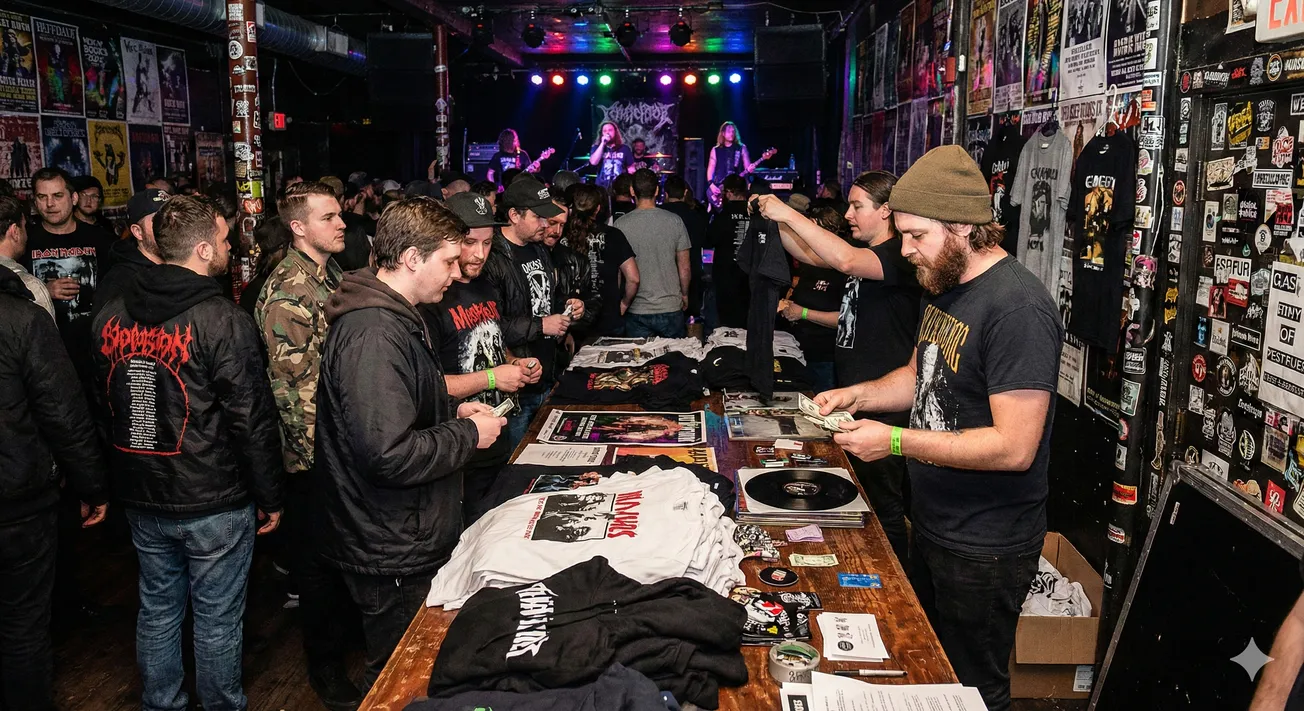Steve "Renman" Rennie is likely best known as the music manager for Incubus who he's worked with from their initial record deal. Lately more are getting to know him through his online educational activities teaching new comers about the music business. I spoke with Rennie yesterday and found out that his interest in education isn't just a hobby but is set to become the third major chapter in his life story. He was kind enough to answer my very basic questions as he's been more than happy to do for all sorts of emerging musicians.
Steve Rennie is primarily associated with the music industry for good reason. He's had a great run with Incubus and played a variety of industry roles besides manager giving him a deep view of what it takes to become a musician in today's world.
But Rennie's also a golfer and it turns out he was serious about going pro until he realized that wasn't going to happen at the competitive level he desired. Though we didn't dig into the details, that's why Rennie looks at his increasing activities at the soon to relaunch Renman Music & Business as the third chapter of his career rather than the second.
Ask Renman
If you're familiar with the Renman Music & Business site you know it's full of great interviews and that Rennie has freely given of his time to directly answer questions and create shows that allow up and comers to ask whatever question they have of whatever guest is visiting. And it's quite an impressive list as you'll see from browsing Live Shows and Videos.
So I decided to ask Renman some questions I've had based on how the game has changed and how music managers fit into those change. It was quite a conversation and here are some key ideas from my notes.
Much Is Easier But "The Tough Didn't Go Away"
Rennie's very clear that complaints about the difficulties created by the web are mostly a waste of time. It doesn't help you get anything done and it obscures the fact that, in his opinion, the web and related digital communications have made things easier.
As he pointed out, artists used to have only gatekeepers. Once you were signed you still had to get on the radio and get your video on MTV and then hope that people would respond. The web changed that. Artists can now post their videos to YouTube, speak directly with fans and build relationships without having to wait on the gatekeepers.
But here's an interesting thing, Rennie is known for his "Fuck The Gatekeeers" (FTG) attitude. Yet he believes, based on everything he's seen, that most DIY artists want to go all the way. And while they have to have an FTG attitude to survive those early years, to succeed they will ultimately have to win over the gatekeepers.
Rennie maintains that the process of winning over gatekeepers has become a lot easier because you can build an online fanbase and show social media numbers, for example, that are evidence of a growing following.
But that doesn't mean it isn't still tough to make it in the music business. As Rennie pointed out only a small minority of musicians will ever make it.
So though he feels it's actually easier to get the attention you need, the "tough didn't go away."
Music Managers Are More Important Than Ever
One thing I've observed is that even for new artists whose brands were initially built online the music manager remains an essential, perhaps the essential, team member.
Rennie dug into what he's seeing and confirmed my sense of the continued importance of managers and how an artist can be found by one.
Rennie pointed out that the manager had always been important as the direct connection to the artist and, though he didn't say it this way, that means the manager is also the artist's connection to the outside world.
Rennie sees the manager as "putting the tactical to the creative" in partnership with the artist with the overall goal of finding ways to build a business and monetize that creative activity.
The manager's role has changed in that the industry has changed. So managers are not only involved with helping artists build relationships within the industry but also in helping them pursue new approaches and projects that often enter unexplored territory.
So How Do You Get A Manager?
Rennie maintains that great managers will find great acts. And to be known as a great act one must work on one's music and learn to give great performances. On top of that hard work one must be networking in a way that helps spread the word that you're someone worth dealing with.
But, though I assumed that one would eventually have to move to a big city and do more of the things we associate with the old school industry to break in, Rennie maintains you can do that online.
For example, he pointed to his own site Renman Music & Business where anyone can call in and find out more from a wide range of individuals that would otherwise be mostly inaccessible. By participating in such forums, learning and asking smart questions, one can network online in ways that allow you to build from anywhere.
So though online communications have created an incredible amount of noise they've also made it possible to establish the basis for a real career.
Renman U
Now I could have answered of lot of these questions myself by listening to more video discussions and reading through the articles and questions that Rennie responds to in print. But that stuff's scattered and specifics can be hard to find without video transcripts.
It turns out Rennie is addressing this issue with a relaunch of the site based, in part, on his experiments with Renman U. This video series was an attempt to start focusing in on key areas and sharing the specific information in an even more direct manner.
With a relaunch in the New Year, Renman Music & Business will be focusing on organizing lessons and making the information more readily accessible in addition to continuing with live shows and question and answer sessions.
Videos will still be free to watch but to participate in the discussions and become more involved there will be a modest monthly fee.
As Rennie points out, he doesn't really need the money. But he does need a team to run the site and keep improving things and so the business model is designed to support and build that team and the site.
The biggest thing I got from Steve Rennie about what he's trying to do with Renman Music & Business is to help new artists cut through the noise and to learn from the people who are doing the things that new artists hope one day to do.
And he does it without speaking down to those who know less or playing coach to draw clients into an emotional state in order to buy what he's selling. He really does deliver the truth he's found in as direct and honest a manner as possible which is an important quality for someone who intends to be a great teacher.
More:
- How Incubus Manager Steve Rennie Manages Online Music Communities with HootSuite
- Incubus Manager Steve Rennie: "Fuck The Gatekeepers!"
- Incubus Manager Steve Rennie On The Importance of Promoters
Hypebot Senior Contributor Clyde Smith (@fluxresearch) recently launched DanceLand and is relaunching Crowdfunding For Musicians. Contact:
clyde(at)fluxresearch(dot)com.




